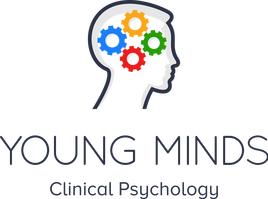“It looks like they all have attention deficit problems, but they don't”. Janice, an experienced primary school teacher, and mother of three children, talks about the so-called ‘internet effect’ on children. “With so much information on the internet & social media, hyperlinked text, videos and interactivity everywhere, kids have developed short attention spans to deal with it all – scrolling up and down, getting bored quickly and moving from one thing to another”.
Janice describes a disturbing trend amongst children. “We’re in this new era of information at our finger tips, and we’re beginning to see the consequences of that in schools. The most disturbing pattern in all this, is that kids simply don’t stop to think anymore. Between their daily habits of clicking, liking & sharing, there is little time for thinking or being curious about anything”
How can parents help?
For many parents, prying their children away from devices can be a difficult task. Others worry that not giving kid sufficient time on screens may alienate them socially, or put them behind on their skills to use new technology. Curiosity Conversations is a strategy that gives parents a way to make the most of their time with their children when they are away from technology. Even small windows of time, on the drive back from school, or going for a walk in the park, can be opportunities to build curiosity and inquisitiveness in children.
Here are some ways parents can start Curiosity Conversations with kids:
1. Encouraging kids to ask questions: Invite children to ask for explanation and examples when they don’t understand something. Let them know its okay to be confused and ask questions.
2. Supporting them to think for themselves: Instead of jumping in and giving kids all the answers, take time to help them solve problems for themselves. By ‘wondering’ together, kids learn about how to think, and not just what to think.
3. Talk about new ideas and areas of interest: “Teachers are often in the dark about all of your child’s interests. This is where parents have the advantage” Janice says that parents use their child’s interests to practice concentration and critical thinking skills.
“Kids are never truly happy without some level of achievement” Janice describes the skills children need for success in the future. “In the information age, achievement will depend on the capacity of children to pay attention and their ability to think & learn. Technology is progressing at a very fast pace, and kids need both teachers, and parents, to help them not be left behind”.



 RSS Feed
RSS Feed
